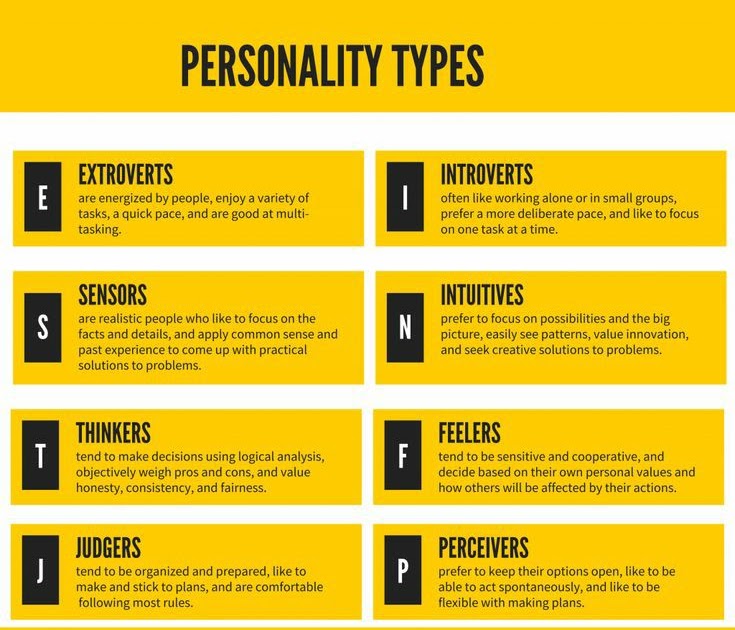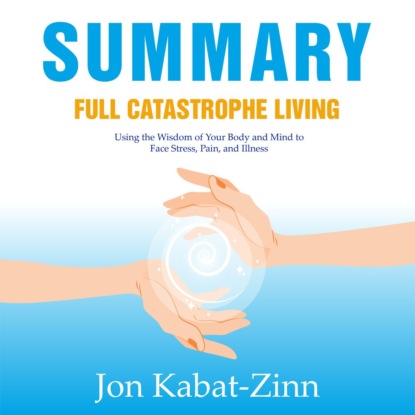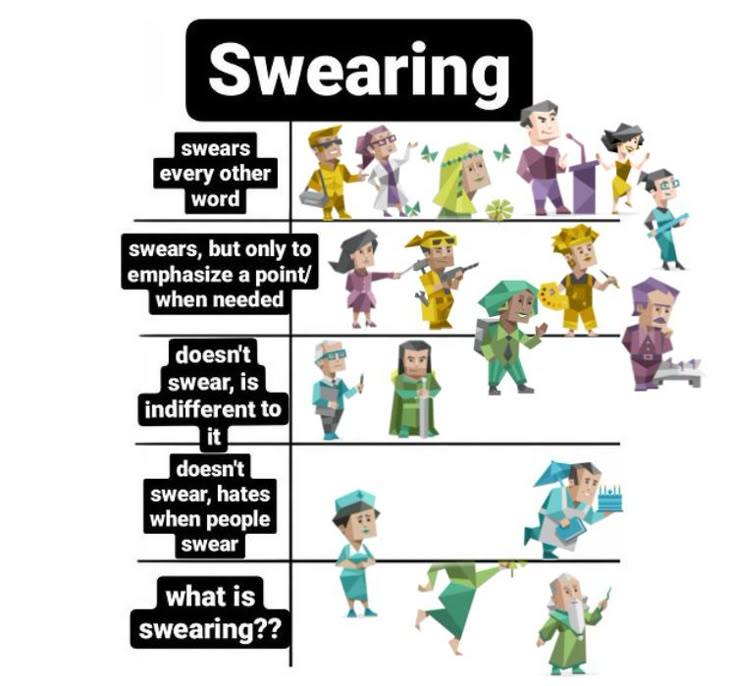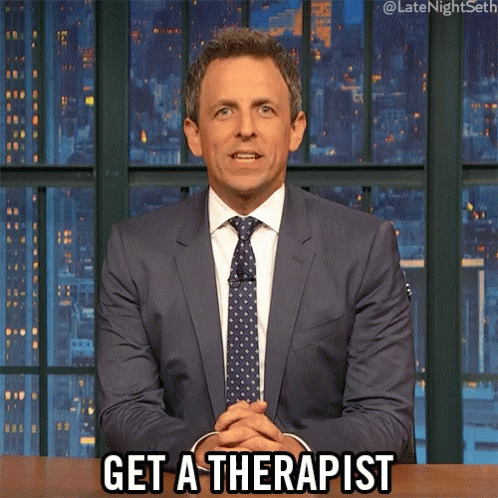When does helping become enabling
When Does Helping Become Enabling?
On the go? Listen to the audio version of the article here:
Are you trying to help someone, but it is only enabling the problem to continue? This is a common question among persons trying to help someone with an addiction, but it also applies to other areas of life.
This article will help you understand whether or not your attempts to help are actually helpful, or if they are based in codependency, enabling boundary violations and perpetuating unwanted behavior.
In simple terms, when does helping become enabling?
Helping becomes enabling when you diminish someone else’s responsibility by not allowing them to experience the natural consequences of their behavior.
Helping allows someone to gain further responsibility, whereas enabling takes away pain in the short-term, making a problem worse in the long term.
Let’s take a deeper dive into this distinction.
Table of Contents
The Difference Between Helping and EnablingIt is important to emphasize the similarity between the definition of addiction and the definition of enabling.
Addiction is a behavior resulting in short-term relief at a long term-cost. Enabling consists of the same process.
Consider the tiger metaphor I shared in my article on Why Responsibility is So Important:
Imagine you invited a tiger cub into your home. It is cute, cuddly, and harmless. You notice it begins to purr loudly, and the only way you can make it stop is to feed it red meat. Over the months and years, you keep doing this, but the tiger is now several hundred pounds, requiring whole sides of beef. Rather than a cute purr, the tiger roars ferociously for its meat. You are terrified, so you keep giving him the meat so he will leave you alone. The more you feed it, the larger it gets, and the more trapped you become.
Helping the tiger stay fed keeps it quiet in the short-term, but you soon realize you’re only enabling its growth. Eventually, you’re trapped with a huge roaring tiger, feeling like you have no choice but to “help” it.
Are you really “helping” the tiger? On one level, it looks helpful, but is this “helping” really about the tiger? Or is it about you.
Are you feeding the tiger out of genuine compassion? Or are you feeding the tiger based on your own fears and insecurities?
Are there safe boundaries between you and the tiger? Or are there no boundaries, leaving you at the mercy of its appetite?
Are you taking care of your own needs? Or is your eye always on the tiger, anticipating its next move?
If the tiger becoming dependant on you for food? Or are you allowing it to develop long-term independence in the wild?
As you have probably noticed by now, this is not really about tigers; it is about your relationship to other people who require your help.
Helping comes from a place of firm healthy boundaries, encouraging the other person to take further responsibility, allowing for long-term growth.
Enabling comes from a place of weak personal boundaries, encouraging the other person to continue sidestepping responsibility, preventing long-term growth.
Going beyond metaphor and theory, let’s take a look at what helping and enabling look like in the real world.
Enabling looks different in each circumstance, but common scenarios include the following:
- Lending money to someone with a gambling issue
- Making excuses for a partner who neglects family obligations due to substance use
- Treating repeated hangovers as merely being “sick”
- Taking on a partners portion of family obligations to keep everything together
- Paying for an adult son or daughter’s food and living expenses, when their funds are going to a substance or addictive behavior
- Turning a blind eye to red flags to avoid conflict
- Putting the needs of others before your own, causing severe self-neglect and potential loss of one’s own self-identity
- Attempting to gain self-esteem and respect through continually doing things for others or trying to be “the hero”
- Gradually building an underlying resentment toward persons one is trying to “help”
- Making empty threats after repeated boundary violations
- Feeling an underlying sense of needing to be needed, attempting to fill the void through several of the “helping” behaviors listed above
Enabling can look like helping, on the surface, but as you can see, there is a pattern in this list.
Enabling means doing things for someone when they can do it for themselves. This diminishes their responsibility due to the lack of natural consequences, leading to continued violations.
Enabling comes from a place of “good intentions” without healthy boundaries. At the extreme end, codependency keeps people trapped in destructive relationships due to their underlying unhealthy need to feel needed due to low self-esteem.
To learn more about healthy and unhealthy versions of this universal human need to be needed, check out my popular article: The Need to Be Needed.
Helping Someone With an AddictionHelping consists of doing things someone can not do for themselves, leading to long-term growth and responsibility. Helping behaviors consist of the following:
- Listening to someone’s experience without judgment and assumptions
- Not overlooking red flags and holding someone accountable for their actions
- Setting clear and firm boundaries regarding responsibilities and expectations
- Collaborating on potential treatment options
- Seeking your own form of support
- Engaging in effective communication
To learn more about effective communication, check out my in-depth article: The Ultimate Guide to Helping Someone Change.
Helping is compassionate, not manipulative. It comes from a place of genuine giving rather than an attempt to receive external validation. Although it is giving, it comes from a place of firm personal boundaries, and one’s own needs are not being compromised in the process.
Helping is like a cast for a broken arm. It allows the bone to repair itself, simply by being there. Like a cast, helping becomes enabling when the cast is on too long. Rather than giving strength, the cast is now making the arm weaker as muscle tissue becomes depleted since it does not need to hold itself up.
ConclusionLetting other people learn to hold themselves up is one of the greatest gifts we can give them. Enabling keeps a person dependent on you. Although enabling fuels underlying resentment in the “helper,” both parties in a codependent relationship are dependent on one another. The helper needs the person to stay in need of help to artificially fulfill their need to be needed.
Helping is collaborative and compassionate, but also careful. It comes from a place of genuine giving, while maintaining personal boundaries. It helps the other person build the strength to help themselves, fueling a sense of purpose, responsibility, and motivation for long-term change.
If you are interested in learning more about what causes people to change, I’ve written about the psychology of motivation in my article titled, What Causes People to Change?
If you’re frustrated, trying to help someone who refuses to change, that article explains why, giving a detailed account of what contributes to real lasting change.
Helping OR Enabling??
Helping OR Enabling??Is there really a difference between helping and enabling? What is enabling? What are the causes and effects of this behavior on both the “enabler” and the person being “helped”? Helping is doing something for someone else that they are unable to do for themselves. Enabling is doing things for someone else that they can and should be doing for themselves. So, why is there so much confusion between the two?
So, why is there so much confusion between the two?
We have many opportunities in our lives to help someone else, whether it be amongst those of our own families, close friends or complete strangers. Perhaps someone you know has become ill, and you help them by arranging and bringing meals to them until they are well enough to do it for themselves again. A friend’s car may be in the shop getting fixed and you help them by driving them to and from work until their car is in good running order again. Maybe someone you know has run into a bit of bad luck and is in need of temporary financial help to tide them over for awhile until their situation improves. Did you notice the optimal word, “until”? Providing temporary help to someone in need exemplifies kindness and consideration towards the receiver of help, but it also makes us feel wonderful inside when we are able to do so. But it is still temporary. What then is enabling?
Enabling is entirely a different matter, but oftentimes gets confused as “help” by well-intentioned family members, friends and even neighbors.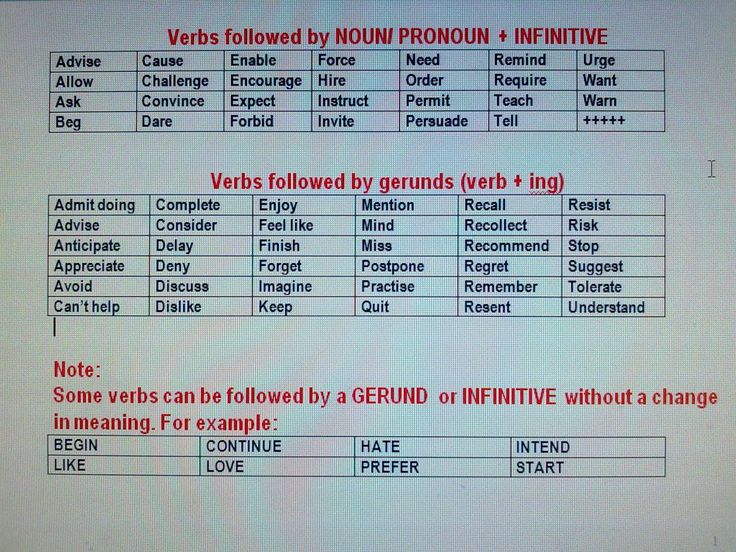 Remember, enabling is doing things for someone else that they CAN and SHOULD be doing for themselves. Many people think of enabling strictly in regards to alcoholics or drug addicts, whose family and friends make excuses for unacceptable behaviors, thus creating an atmosphere of comfort and ease for the situation to continue long-term.
Remember, enabling is doing things for someone else that they CAN and SHOULD be doing for themselves. Many people think of enabling strictly in regards to alcoholics or drug addicts, whose family and friends make excuses for unacceptable behaviors, thus creating an atmosphere of comfort and ease for the situation to continue long-term.
Enabling vs. helping has a much broader meaning, encompassing many areas of life, including raising children to become independent adults rather than contributing to the increasing phenomenon of grown children returning home to live with their parents. When we enable addicts, children, friends or family, we are preventing them from experiencing the consequences of their own actions. We are not only preventing them from realizing they have a problem, but we are also depriving them of fully reaching their own potential.
CO-dependent behavior early warning signs:
- Repeatedly bailing them out—of financial problems, extending deadlines, other “tight spots” they get themselves into
- Giving them “one more chance”–. . .then another. . .then another. . .then another
. .then another. . .then another. . .then another
- Ignoring the problem—because they get defensive when you bring it up and you want to “keep the peace” or your hope that is will magically go away.
- Joining them in blaming others or in making excuses—it’s never their fault, they have problems, their life has been “rough”.
- Accepting their justifications, excuses and rationalizations “I’m depressed” “I have a rough life (childhood, work schedule. Etc., etc.)
- Avoiding Problems—Again to keep the peace, or to avoid “upsetting” them
- Doing for them what they should be able to do for themselves—Yes—even when it’s faster, easier, simpler to just do it for them.
- Softening or removing the natural consequences-After all they shouldn’t have to suffer
- Trying to “fix” their problem for them.
- Repeatedly coming to the “Rescue”
- Trying to control them or their problem—Getting angry, frustrated, or hurt when they don’t “take your advice” or accept your help.
If even one or two of the above apply to a relationship over a weeks, months, or beyond; this is a sign that the relationship has become a co-dependent, enabling type of relationship.
The Best Of Intentions Often Back-fire
Helping someone in need is truly admirable, until. Enabling someone is not so admirable, fraught with complications that can last indefinitely. Society often sends confusing messages about what it means to be a good family member or friend. However “unselfishness” must have limits – everyone needs to have limits in relationships.
Being an enabler has its own payoff, with a false sense of control over the lives of others. Well-intentioned parents, friends and even strangers can often find themselves feeling frustrated, resentful and used, but lack the will to stop the enabling. The “help” provided to those lacking the motivation and determination to stand on their own two feet has become a long-term expectation and outright demand by many. Are you an enabler?
Turning Enabling Behaviors Into Positive Potential-Friends, family, neighbors, co-workers etc must learn to redirect their “helping” efforts with Tough Love, allowing persons to recognize and accept the responsibilities and consequences of their own choices, rather than enabling the continuance of unacceptable behaviors to the detriment of everyone involved. Take responsibility for any enabling behaviors, which is considered by some experts to be akin to abuse, realizing that creating positive change in someone being “helped” will not only have a positive impact on them but on you as well. There really is a difference between helping and enabling, but it is up to you to choose whether to continue on this path or to put a stop to it now.
Take responsibility for any enabling behaviors, which is considered by some experts to be akin to abuse, realizing that creating positive change in someone being “helped” will not only have a positive impact on them but on you as well. There really is a difference between helping and enabling, but it is up to you to choose whether to continue on this path or to put a stop to it now.
Written by:
Alyssa Baker
Foundry Treatment Center
Also, check out her blog!! You can find it here - http://spacelyss.wordpress.com/
Photo Credit: Stacy S. w/ Foundry Treatment Center
Back To Blog
Return to top
Categories
Categories
Fall Food
Could Clinical Trial Reporting Spur Illicit Substance Use?
Colorado’s Rural Communities Offer Stark Evidence of Factors Reducing the Nation’s Life Expectancy
Late Summer Food for Thought
The Male Friendship Crisis
June Recipe
The Role of Trauma and Mental Health in Addiction
May Blog
Community Cooking
Sunday brunch hash!
Mixed Nut Granola
Farro and Crushed Pistachio “Meatballs"
January Recipe: “Broccoli Quinoa fritters with White Bean Puree Arugula Salad"
Why Cannabis Use Disorder Should Be Taken Seriously
What is for Dinner - Healthy Habits
Wellness and the New Year
I'm Taking a Walk
Wellness During the Holidays
Helping OR Enabling??
Addiction Lead to Recovery, and Recovery Lead to Being a Good Dad
My Son is an Addict
Community, Connection, and Compassion
Listen Like a Dog
5 Tips for Staying Sober as a College Student
How Do You Know When Drinking Has Become a Problem?
What Is Borderline Personality Disorder?
How Do You Teach Your Kids About Drugs and Alcohol?
7 Common Myths About Depression
5 Mental Health Issues That Are Frequently Misdiagnosed
How Do You Know if You Need Residential Treatment for Addiction?
9 Tips for Getting the Most Out of Therapy
What Fills Your Cup
Can a Pet Help You Recover From Addiction?
How to Control Panic Without Xanax
How Do You Make Relaxation a Regular Part of Recovery?
How Do You Fix Your Finances After Addiction?
8 Things You Shouldn’t Say to Someone With Depression
What Are the Most Common Challenges People Face Early in Addiction Recovery?
7 Meditation Tips to Supercharge Addiction Recovery
7 Ways to Get Rid of Brain Fog for a Stronger Recovery
Five Common Misconceptions About Trauma
Have You Replaced Alcohol With Sugar?
Why Is Social Connection Important for Addiction Recovery?
Can You Detox at Home?
Six Easy Ways to Eat Healthier for Addiction Recovery
Seven Ways to Avoid a Relapse of Depression
How Do You Know When Your Anxiety Is Really an Anxiety Disorder?
Ten Signs Your Depression May Be Returning
How Do You Keep Grief from Sinking Your Recovery from Addiction?
How to Build Resilience in Recovery
What Are Some Lesser-Known Signs of Addiction?
How Do You Stay Sober When Your Partner Drinks?
Staying Socially Engaged When You Really Don’t Feel Like It
Can You Make Yourself Less Neurotic?
Six Ways to Manage Pain in Addiction Recovery
Four Thinking Mistakes that Can Stand in the Way of Addiction Recovery
4 Ways to Be More Conscientious
How Do You Protect Yourself With a Family History of Addiction?
What if Exercise Makes You Feel Worse?
Can Reducing Inflammation Improve Your Recovery from Addiction?
7 Easy Grounding Techniques to Help You Manage Anxiety
8 Tips for Cultivating Compassion in Addiction Recovery
Are You Afraid of Change?
8 Tips for Dealing With Anger When You’re Sober
How Do You Forgive a Loved One After Addiction?
9 Tips for Resolving Conflict
How Do You Make Friends When You’re Sober?
How Do You Manage Anxiety in Addiction Recovery?
How to Adopt a Growth Mindset for Addiction Recovery
How Do You Cope with Shame?
How a Growth Mindset Can Help You Beat Addiction
How to Live in the Present Moment
How to Make Exercise a Regular Part of Your Addiction Recovery
How Do You Escape a Recovery Rut?
Should You Quit Smoking While Recovering from Addiction?
Can Hypnosis Help You Overcome Addiction?
7 Mental Health Challenges that Drive Addiction
Why Comparing Yourself to Others in Recovery is a Losing Game
How Does Binge-Watching Affect Your Mental Health?
The Pros and Cons of Caffeine in Addiction Recovery
How Do You Stay Motivated in Addiction Recovery?
4 Ways Writing Can Help You Stay Sober
How Do You Improve Your Self-Awareness in Addiction Recovery?
How Do You Cope With Depression During Stressful Times?
6 Tips for Setting and Maintaining Healthy Boundaries in Addiction Recovery
Why Is Emotional Intelligence Important for Addiction Recovery?
How to Write an Intervention Letter That Makes a Difference
6 Ways to Deal With Boredom in Addiction Recovery
How Do You Care for Yourself When a Loved One Has a Substance Use Disorder?
Five Common Misconceptions About Mindfulness in Addiction Recovery
Why Don’t People Seek Help for Addiction?
Six Ways to Boost Your Willpower for Addiction Recovery
Nine Common Mistakes to Avoid in Addiction Recovery
Why Is Transitional Care Important for Addiction Recovery?
Six Persistent Myths About Addiction
What Can You Do to Help Reduce the Stigma of Addiction?
Do Drugs and Alcohol Permanently Affect Your Brain?
Six Common Misconceptions About Addiction Treatment
When Do You Need More Than the 12 Steps to Beat Addiction?
How to Feel Better by Ending Rumination
Contact Foundry
Call today to get started on your journey or if you have any questions.
(844) 955 1066
Option 12 - essay 9.3. according to Tsybulko (OGE-2020)
Mutual assistance is a person's desire to help other people. A person has a sincere desire to help, therefore, he performs certain actions for this. However, mutual assistance does not always bring positive results. Often a person, wanting to help someone, renders the so-called "disservice", which consists in such help that instead of good brings harm. When a person thinks about helping someone, he should consider whether his actions will bring benefit or, conversely, harm. If he comes to the conclusion that the help will bring positive results, then such help is appropriate; otherwise, the help will be unnecessary and of no use.
K.I. Chukovsky in his text. It says that the class in which the narrator studied was supposed to write a dictation. Wanting to help his best friend, who, due to illness, lagged behind the educational material, the narrator, who knew how to write dictations without errors, came up with the following method: tie a rope to his and his legs so that he jerked his leg when it was necessary to put one or a different punctuation mark (sentences 7-11). All classmates of the narrator decided to use this method (sentences 13-20). The text emphasizes that the narrator really wanted to help his comrades, so he diligently jerked his leg when necessary. However, when the results came, the narrator realized that his desire to help brought only negative results for his classmates: due to the fact that the students wrote the dictation at different speeds, the narrator's classmates, without even thinking about writing on their own, put punctuation marks in the wrong places need (sentences 34, 39). K.I. Chukovsky shows that the narrator, sincerely wanting to help, did his classmates a "disservice".
All classmates of the narrator decided to use this method (sentences 13-20). The text emphasizes that the narrator really wanted to help his comrades, so he diligently jerked his leg when necessary. However, when the results came, the narrator realized that his desire to help brought only negative results for his classmates: due to the fact that the students wrote the dictation at different speeds, the narrator's classmates, without even thinking about writing on their own, put punctuation marks in the wrong places need (sentences 34, 39). K.I. Chukovsky shows that the narrator, sincerely wanting to help, did his classmates a "disservice".
The problem raised in the text is reflected in many literary works. So, the very phraseologism “a disservice”, which is referred to in our reasoning, originated from the fable of I.A. Krylov "The Hermit and the Bear". It talks about how the Bear, which in the work symbolizes a person, wanted to do his friend a favor. When the Hermit fell asleep, the Bear saw that a fly was landing on him. The bear constantly drove away the fly, but it still landed on the Hermit. Then the Bear took a stone and hit the fly with it when it sat on the forehead of the Hermit, which led to the death of the hero. The moral of the whole fable lies in the following words: “Although the service is dear to us in need // But not everyone knows how to take it: // God forbid to contact a fool! // An obliging fool is more dangerous than an enemy.
The bear constantly drove away the fly, but it still landed on the Hermit. Then the Bear took a stone and hit the fly with it when it sat on the forehead of the Hermit, which led to the death of the hero. The moral of the whole fable lies in the following words: “Although the service is dear to us in need // But not everyone knows how to take it: // God forbid to contact a fool! // An obliging fool is more dangerous than an enemy.
Based on the foregoing, we can come to the following conclusion: mutual assistance based on a sincere desire to help someone does not always bring positive results. It happens that help does not bring good and benefit, but harm. Each person should think about when his help is appropriate and when not.
With the full text of K.I. Chukovsky can be found at link .
Option 12 - compositions 9.1. and 9.2.:
 S. Valgina
S. Valgina Option number 12. OGE-2020
August 1, 2019
Bookmark
Discuss
Complaint
TG 4USE
OGE (Gia) in Russian
Essays for option No. 12 OGE in Russian "36 options. I.P. Tsybulko".
Text
Eleven days ago, our director came to us and, as if reciting poetry, told us in his singsong, solemn voice: “Mr. Trustee of the educational district, His Excellency Count von Lustich, one of these days will make our class happy with a visit and, perhaps, wishes to be present at the Russian lesson during the dictation.
Now that day has come. I feel especially sorry for Timosha Makarov, my best friend, sitting behind me, obliquely from me.
Full text:
Composition 9.1
Write an essay-reasoning, revealing the meaning of the statement of the modern linguist Nina Sergeevna Valgina: "Punctuation has the widest possibilities for conveying semantic and intonational subtleties. "
"
Modern linguist Nina Sergeevna Valgina believes: "Punctuation has the widest possibilities for conveying semantic and intonational subtleties." I think that the meaning of this statement lies in the following: punctuation marks help us reflect what cannot be expressed in words. Let us prove this using the text of Korney Ivanovich Chukovsky as an example.
The following sentence is very interesting for analysis: “Timosha… wait… I came up with it!”. Is it possible to reflect in any words the process of intense thought and the search for a way out of a difficult situation? But the ellipsis is very suitable for this purpose.
Even more interesting is the sentence with brackets (number 28). What words can express this convulsive twitching? No, only brackets are definitely needed here - this is both discontinuity, and the absurdity of the situation, and something else, so elusive that it is difficult to convey.
As we can see, punctuation is absolutely necessary when it is necessary to reflect something subtle, almost irresistible.
Essay 9.2
Write a reasoning essay. Explain how you understand the meaning of sentence 30 of the text: "I tirelessly transmitted my signals to my comrades."
In sentence 30 we read: "I tirelessly transmitted my signals to my comrades." What is the meaning of this fragment? Maybe it's about good intentions that lead to bad results? Let's look at the text to see this.
The hero of Korney Chukovsky's story is a boy who wants to help his friend and comes up with a way to do it. (sentences 7-12). This is a good thing - mutual assistance, only here the signals will not help here. After all, signals are means for transmitting information, and if there is none, then signals are useless.
Our hero wanted to help one of his friends, but it turned out - the whole class. The responsibility is huge, but there is no benefit. We read about this: “Blindly relying on my phone, the comrades who were sitting far behind did not move their brains anymore and, on a signal, were ready to put commas inside each word, even cutting it in half. ” What's the point in the fact that one student worked tirelessly if all the others "didn't move their brains"?
” What's the point in the fact that one student worked tirelessly if all the others "didn't move their brains"?
So, that's right: it's not enough just to want to help your comrades, you need to do it wisely and profitably.
Composition 9.3
How do you understand the meaning of the word MUTUAL RECEIVANCE? Formulate and comment on your definition. Write an essay-reasoning on the topic "When does help become inappropriate?".
Mutual assistance is a wonderful phenomenon in our life, based on the desire to help each other in difficult times. But there are situations when helping comrades becomes inappropriate. Korney Chukovsky, for example, writes about one such case.
The hero of the writer's work is a boy who wants to help his friend in a difficult situation: he came up with a signal system for correct punctuation. In his opinion, the invention should ensure the success of a lagging friend in the Russian language lesson. The whole class found out about this, and everyone wanted to use the method of successful writing a paper without “moving their brains” too.


